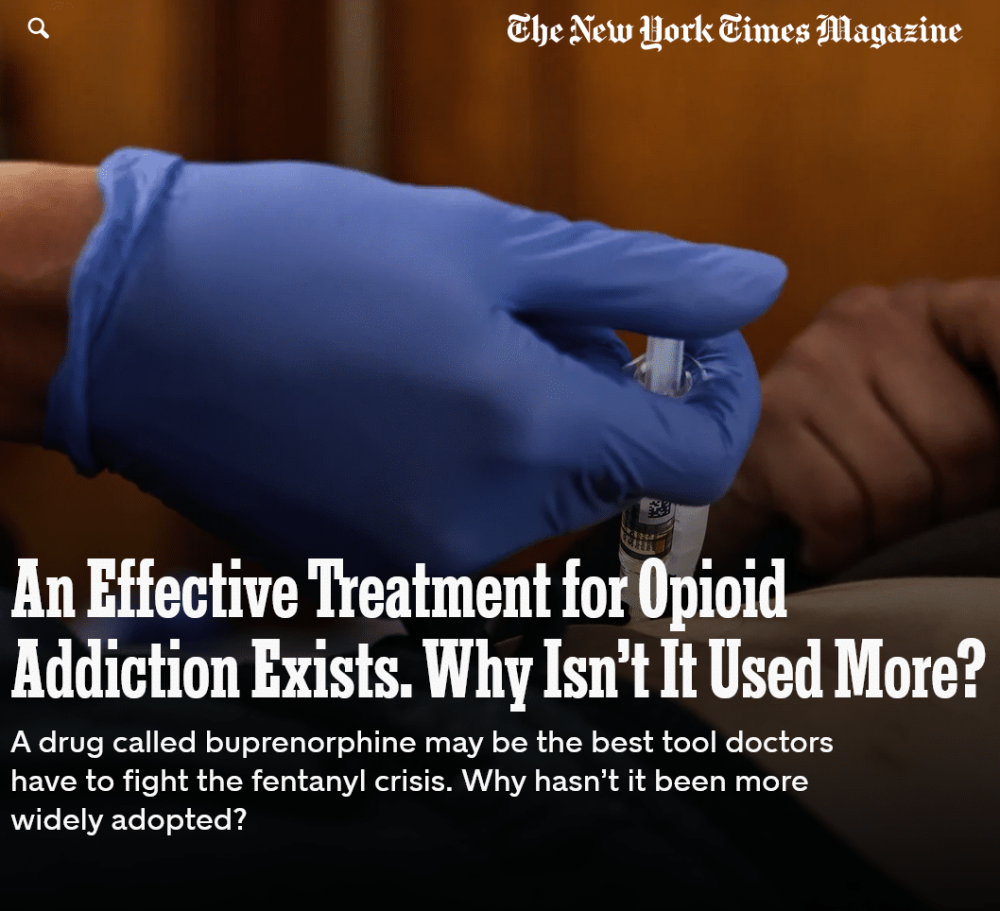Every year hundreds of thousands of Americans die from alcohol or drug-related causes. Tragically, these numbers continue to rise. According to the CDC’s National Center for Health Statistics, in 2021 drug overdose deaths increased by over 28 percent from the previous year.1 Alcohol deaths have doubled since 1999, with 385 Americans dying every day because of excessive alcohol use.2,3
While these statistics are frightening, they’re just faceless numbers. The real heartbreak is the reality of seeing a loved one struggle with drug or alcohol addiction and feeling powerless to help. Addiction destroys relationships, careers, finances, physical and mental health, and much more. Reaching out for help takes courage, but the support of family and friends can be integral to a successful recovery.
Detoxification (detox) is the first step in addiction recovery. When a person stops using or significantly reduces the amount of an addictive substance, their body begins to detox. During detox, the brain works to normalize functions as it rids itself of the toxic substance. Withdrawal symptoms are usually most intense during this initial or acute detox phase.4
The Dimensions of Recovery
The Substance Abuse and Mental Health Services Administration (SAMSHA) provides valuable resources for those with substance use or mental health disorder, or both, and their families.5 SAMHSA emphasizes, “The process of recovery is supported through relationships and social networks. This often involves family members who become the champions of their loved one’s recovery.”6
SAMHSA outlines four crucial dimensions of recovery. Families and friends can positively impact each of these dimensions by supporting their loved ones through detox, treatment, and long-term recovery.
- Health: overcoming or managing one’s disease(s) or symptoms and making informed, healthy choices that support physical and emotional well-being
- Home: having a stable and safe place to live
- Purpose: maintaining meaningful daily activities (a job, school volunteerism, family caretaking, or creative endeavors), and the independence, income, and resources necessary to participate in society
- Community: having relationships and social networks that provide support, friendship, love, and hope
How You Can Support Your Loved One Through the Dimensions of Recovery
Supporting a loved one as they detox can be incredibly valuable, but it can be daunting if you are unsure how best to help. Talk to your doctor or an addiction specialist for guidance and resources.
Before your loved one begins to detox, educate yourself about the disease of addiction and how it changes the brain to understand why it’s so challenging for a person to stop without professional help.7
Seek information from your healthcare specialist about the detox process, including:
- Withdrawal symptoms your loved one will likely experience and how long they may last.8
- Whether the doctor can prescribe medications to ease withdrawal symptoms.9
- Whether detoxing at home is a safe option or inpatient medical detox is advisable.10
The following are some tips for supporting your loved one in the four dimensions of recovery before, during, and after detox.
Health
- Encourage a diet of whole foods rich in the amino acid tyrosine, L-glutamine, antioxidants, and tryptophan, and foods that boost GABA levels. These foods improve mood and speed healing.11 Help your loved one avoid processed foods, high-fat meats, and sugar.
- Encourage self-care. Studies support the efficacy of mind-body relaxation techniques in decreasing the risk of relapse. Mindfulness, meditation, guided imagery, and other practices that focus on enhancing relaxation, releasing negative thoughts, and embracing positivity increase the odds of long-term recovery.12 Avoidance of negative people, news, and movies reinforce positive thoughts.
- Regular exercise elevates the mood and strengthens the body. Groups like The Phoenix offers a variety of online classes, with the only cost being 48 hours of sobriety.13 You could also take walks in the park with your loved one. Connecting with nature is a great way to lift the mood.
Home
- Ensure the home environment is safe and free of all addictive substances. Only allow visitors that support and respect your loved one’s sobriety and are willing to abstain from alcohol or drugs when in the company of your loved one.14
- If the home environment or community is unsafe, research sober living houses (SLHs). Studies have found SLHs to be a good option for those in recovery who lack a stable, drug- and alcohol-free living environment.15,16
Purpose
- Being idle, isolating oneself, or lacking purpose increase the danger of relapse. Help redefine “fun” by helping your loved one find sober friends and activities, volunteer opportunities in the community, and other ways to connect with others and feel good about themselves.17
- Help your loved one discover or rediscover a passion. Maybe it was a hobby or activity they loved but lost during their struggle with active addiction. Or it might be something new to discover. Feeling excited about the possibilities and setting goals reinforces the positive aspects of a sober life.18
Community
- Support your loved one by remaining positive, calm, and readily available to listen and encourage as they detox and throughout their recovery journey.
- Attend a support group for families of substance abusers. You will receive invaluable information and encouragement to help yourself, your loved one, and your family.19 Encourage your recovering loved one to attend a support group when they are able.
- Help your loved one understand that while detox is a crucial step in their recovery, it is the first step. For the best chance at long-term recovery, it is essential they attend a rehabilitation program. Relapse rates are significantly higher for those who do not take part in a treatment program after detox.20
Addiction is a family disease, and recovery lasts a lifetime. The more involved family members are in the recovery process, throughout detox, treatment, and post-treatment, the more they and their loved ones learn new ways of communicating and interacting.
Research finds families or friends that support a loved one through recovery increase their chance for long-term success.21 Recognize that it may be frightening for your loved one to seek help or even accept they need help. Your empathy and support may be just what they need to turn their life around.
At Gallus Medical Detox Centers, we treat our patients with the respect they deserve, as our addiction recovery experts ensure they remain safe and comfortable throughout the detox process. Contact Gallus to learn more.
Sources
- https://www.cdc.gov/nchs/pressroom/nchs_press_releases/2021/20211117.htm
- https://drugabusestatistics.org/alcohol-abuse-statistics/
- https://www.healthline.com/health-news/alcohol-related-deaths-double-in-two-decades#:~:text=1%20Alcohol-related%20deaths%20are%20on%20the%20rise%20according,men%20between%20the%20ages%20of%2045%20to%2074
- https://store.samhsa.gov/sites/default/files/d7/priv/sma15-4131.pdf
- https://www.samhsa.gov/families
- https://www.samhsa.gov/find-help/recovery
- https://www.psychologytoday.com/us/basics/addiction/addiction-and-the-brain
- https://adf.org.au/reducing-risk/withdrawal/home-based/
- https://www.heretohelp.bc.ca/sites/default/files/fgta-coping-kit-from-grief-to-action-when-addiction-hits-home-full.pdf
- https://adf.org.au/reducing-risk/withdrawal/home-based/
- https://health.usnews.com/health-care/for-better/articles/2018-12-03/foods-that-are-good-for-addiction-recovery
- https://www.ncbi.nlm.nih.gov/pmc/articles/PMC4553654/
- https://thephoenix.org/
- https://www.heretohelp.bc.ca/sites/default/files/fgta-coping-kit-from-grief-to-action-when-addiction-hits-home-full.pdf
- https://www.ncbi.nlm.nih.gov/pmc/articles/PMC3057870/
- https://www.ncbi.nlm.nih.gov/pmc/articles/PMC5646694/
- https://www.psychologytoday.com/us/blog/between-cultures/201805/in-helping-others-you-help-yourself
- https://www.psychologytoday.com/us/basics/addiction/recovery-addiction
- https://www.bettermarriages.org/relationship-help/supporting-your-spouse-through-addiction-and-recovery/
- https://www.ncbi.nlm.nih.gov/pmc/articles/PMC1976118/#:~:text=Compared%20with%20individuals%20who%20remitted%20after%20obtaining%20help%2C,the%20relapse%20rate%20among%20these%20individuals%20was%2060%25
- https://www.psychologytoday.com/us/basics/addiction/recovery-addiction


 Steve B
Steve B 
